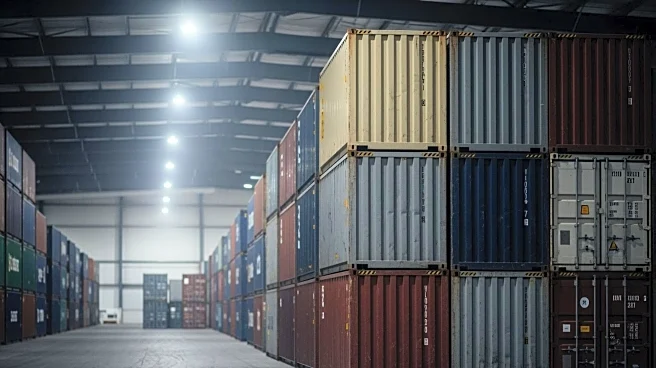What's Happening?
Morrisons, a major supermarket chain, is experiencing financial pressure due to a £400,000 shortfall attributed to increased freight charges. The issue arises from a flat rate charging system implemented by ferry company DFDS in March, which caught the
supermarket off guard. Andrew Holmes, Morrisons' operating director, expressed concerns to Jersey's economic scrutiny panel, indicating that the unexpected costs might lead to price increases for customers or necessitate cost-cutting measures within the company. This development is part of a broader set of challenges faced by businesses in the Channel Islands, including new import requirements affecting seafood exports to France and logistical issues impacting local suppliers.
Why It's Important?
The financial strain on Morrisons highlights the broader economic challenges faced by businesses in the Channel Islands due to changes in freight and import regulations. The potential for increased consumer prices could affect the cost of living for residents, while businesses may need to adjust their operations to absorb or pass on these costs. This situation underscores the interconnectedness of regional trade policies and local economies, with significant implications for supply chain management and consumer pricing strategies. The outcome of these challenges could influence business decisions and economic stability in the region.
What's Next?
Morrisons and other affected businesses may need to engage in discussions with ferry operators and regulatory bodies to seek solutions or adjustments to the current freight charging system. Additionally, businesses might explore alternative supply chain strategies to mitigate costs. The economic scrutiny panel and local government could play a role in facilitating these discussions to ensure economic stability and protect consumer interests. Monitoring the impact on consumer prices and business operations will be crucial in the coming months.
Beyond the Headlines
The situation with Morrisons and other businesses in the Channel Islands reflects broader economic trends where logistical and regulatory changes can have significant ripple effects. This case highlights the importance of adaptive business strategies and the need for robust communication between businesses and regulatory bodies. It also raises questions about the sustainability of current trade practices and the potential need for policy adjustments to support local economies.
















